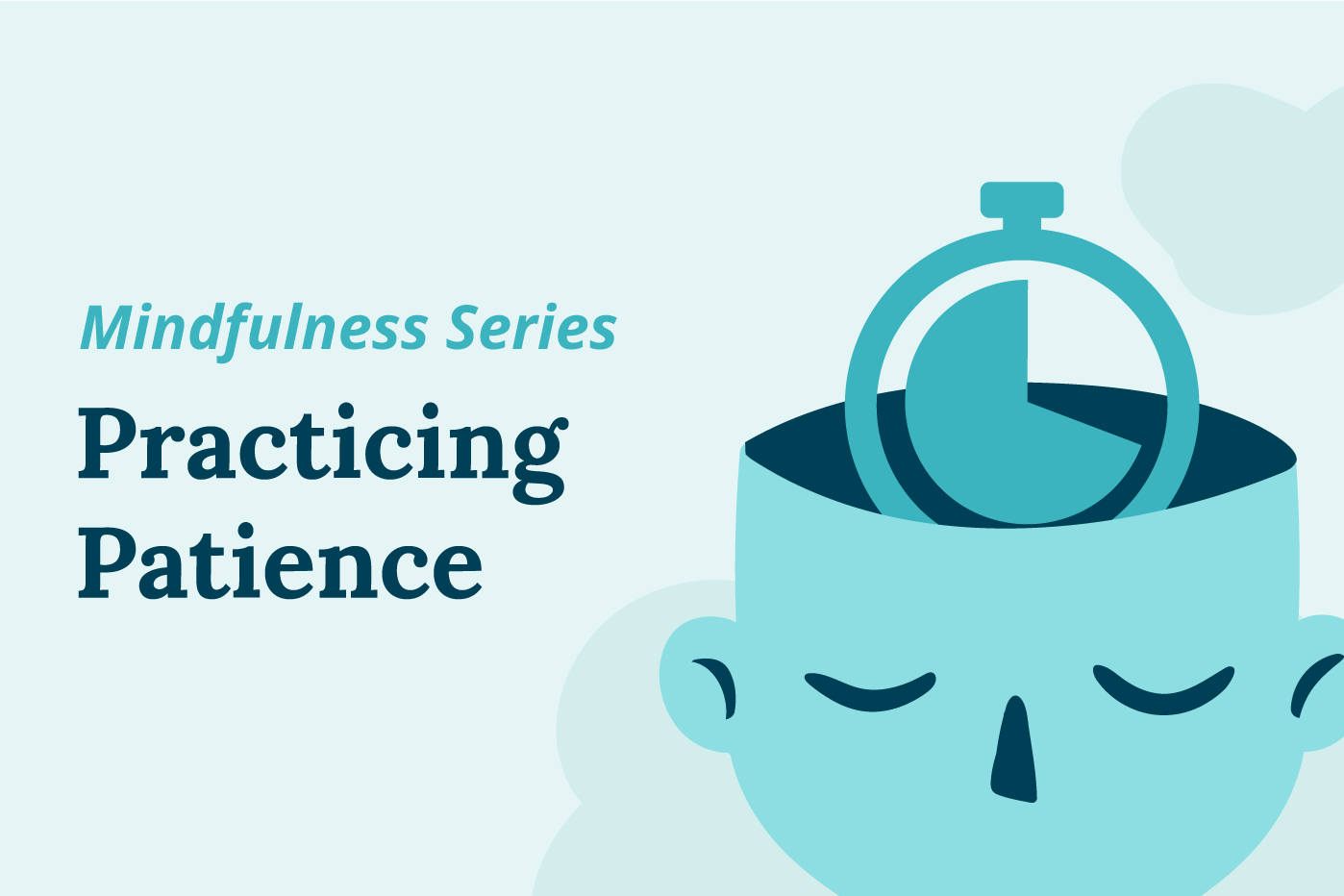Mindfulness: Practicing Patience Can Improve Your Organization
Patience is a learned skill that is a critical element of individual and organizational success. Work life is full of stressful and unpredictable situations where personal decisions can have a lasting impact on individuals and those around them. Patient people can be mindful and accept that things unfold on their own time. These skilled individuals see the bigger picture and understand that stressful or difficult situations will pass and that goals take time to achieve. By being proactive about the need for patience and teaching and engraining the skill as a critical element of the overall philosophy and workplace culture, organizations are better set up to succeed.
Patience has a critical interplay with the concept of mindfulness because difficult situations require heightened mental awareness and understanding to navigate successfully. Being patient involves being observant and listening to the opinions of others (as opposed to just hearing what someone is saying and passing judgment on it). Practicing patience also means making calculated quality decisions under pressure. While some individuals may have an innate sense of “clutch,” or the ability to efficiently handle pressure-packed situations with relative ease, with proper training and quality leadership, anyone can improve workplace patience.
The following are steps that can be taken to improve patience in the workplace as part of the greater goal of enhancing culture through the concept of mindfulness. While the practice of patience flows from leadership, each step is valuable to all members of the organization, as the individual skills needed to become a genuinely patient member of the workforce apply to anyone from executive leaders to entry-level employees.
Help Others Reach Their Goals
A trait of a patient person is a willingness to assist others in achieving their own goals for the greater good of the group. Patient people understand the value of teamwork and the need for the organization to succeed so its members can reach their goals. When the organization rewards assistance from team members, those who use patience feel the sense of reward from empowering others to reach their potential. Too often, impatient people only see the immediate results of assisting another and may incorrectly perceive that person as having the potential to undermine their success.
Encourage a Sense of Calmness in the Organization
Stressful situations are unavoidable. But when the organization allows a management or work style that is chaotic or full of boisterous or loud operation (yelling and constant criticism), the culture projects as one that lacks patience. By speaking calmly and helping the workforce through difficult times, the crew is better prepared to handle the following challenging situation more patiently and calmly.
Elevate Others
Patient organizations and leaders can elevate their subordinates and those who may be new to the organization to the output level they have come to expect from themselves and those working around them. While often associated with leadership skills, many people who may not be leaders (at least in the title) can take actions in a patient manner that lifts the overall sense of camaraderie in the workplace. By praising and rewarding teamwork and interpersonal relationships, the organization strengthens the individual members and provides them with skills they can take away from work and their personal lives. This type of education is invaluable, as it starts to make the work-life balance feel more symbiotic, and that work can be a place where personal learning and enlightenment occur.
See Things as Others Do
Too often, we believe others see the world as we do. This mistake relates to our over-reliance on judgmental thought, but it is critical to preach patience in our view of situations. Patience removes any personal opinion of conflict or critical decision-making at work and focus on the objective facts to guide them. By viewing situations through the lens of those experiencing them, the workforce can develop a greater sense of appreciation and understanding for those around them. It is critical to ensure that the crew understands the interplay between patience and listening, as the two skills are inseparable.
Patience is essential in the workplace because it leads to fulfillment, success, and a mindful approach. Given the number of stressful situations and interpersonal conflicts at work, a patient approach is critical. What often goes unwritten or unsaid in organizations large and small is the philosophy that individuals have the organizational blessing to use patience in all aspects of their lives. When the workforce is confident that decisions do not need to be rushed and do not need to react immediately, they can develop the skill of patience, and the organization can improve its culture.
Syntrio believes patience is a skill that can be learned and is a subset of the broader concept of mindfulness. Syntrio has developed a unique set of awareness products aimed at educating the workforce in short-form on the importance of all aspects of mindfulness as it relates to organizational culture. We invite you to contact a staff member to see how Syntrio’s awareness products can help improve your corporate culture.

